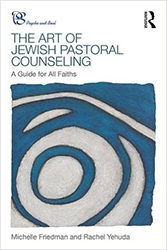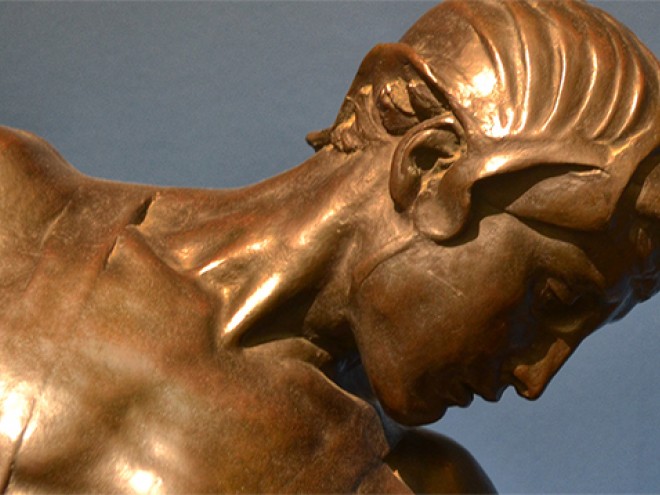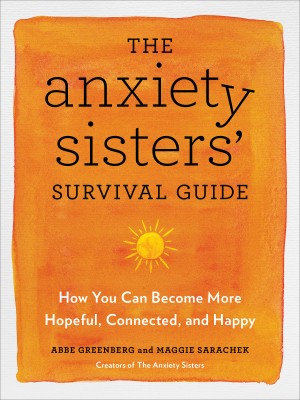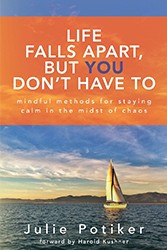Drs. Michelle Friedman and Rachel Yehuda are the co-authors of The Art of Jewish Pastoral Counseling: A Guide for All Faiths. With the holiday season approaching, they will be guest blogging for the Jewish Book Council together as part of the Visiting Scribe series here on The ProsenPeople.
How did a nice psychiatrist/psychoanalyst, not to mention a neuroscientist, get mixed up with the world of rabbis and wind up writing a book on pastoral counseling? Aren’t mental health professionals and clergy like oil and water — do they not embody the gulf between science and faith, between non-judgmental exploration and directed guidance?
We believe that the two fields can coexist and even nourish each other. Perhaps blending the rigorous methodology and principals of mental health treatment with the wisdom of religion can create a healing experience that combines the best of both worlds — the yin and yang of a spiritually and psychologically satisfying response. Our odyssey started two decades ago when Michelle had the opportunity to bridge her professional and personal passions by organizing a conference on Jewish responses to anxiety and depression. This led to an invitation to be the pastoral counseling expert at four-day rabbinic conference. She was in for a big surprise.
Perhaps the serene wooded setting of the retreat center encouraged trust and openness. As the days passed, participants increasingly shared painful and sometimes shocking vignettes that congregants disclosed to them on a regular basis. While these well-meaning, good rabbis did the best they could, they were often overwhelmed by their own anxiety and simply did not know what to do. Whether early on in their careers or many years out, these clergy felt alone and unsupported out there in the field. Their seminary years had prepared them to answer questions about Jewish ritual but not on how to listen and respond to stories of loss, betrayal, and confusion. Unlike mental health professionals, whose training includes supervision and encourages personal therapy, rabbis rarely share pastoral challenges with their peers.
Michelle left that retreat chastened. Clergy are first responders to the messy needs of their congregants. She started doing one-off programs here and there for rabbinic alumni groups and other organizations. When Rabbi Avi Weiss called her out of the blue in 1999 and asked if she was interested in heading up pastoral counseling at Yeshivat Chovevei Torah (YCT), the rabbinical seminary he was starting for Orthodox rabbis, it sounded like an intriguing adventure. Michelle had no idea of what a pastoral counseling program was, so she borrowed from her own psychiatric and psychoanalytic training programs and brainstormed with the few people she could find who were engaged in similar work.
One of the people she called was Rachel. Rachel is a psychologist and neuroscient who had by then developed several successful clinical treatment programs for trauma-related illness like posttraumatic stress disorder at the Icahn School of Medicine at Mount Sinai, which included modules for training young residents and interns. These programs included the Specialized Clinic for Holocaust Survivors and their families. Rachel was by then serving on the Board of Directors of YCT. Michelle asked Rachel to teach rabbinical students how to deal with congregants in the aftermath of trauma and disaster.
The years rolled by, and the pastoral counseling program at YCT flourished. One of the major teaching techniques to emerge was role-playing, in which rabbinical students are given scenarios to play-act: one student would act the part of the congregant while the other played the part of the rabbi. Another was process group, where students met every week with a mental health facilitator and, in a confidential setting, talk through feelings and issues that emerge in their training. Other seminaries strengthened their own programs, and mental health awareness grew across the denominations. Both Michelle and Rachel were invited to speak at Jewish community programs across the denominational spectrum on postpartum depression, psychiatric medications, sexual abuse, and how to respond to individual and communal trauma. Emails and calls came from around the country from rabbis who sought consultation on tough pastoral situations.
 It was time to write a book. The goal was not to create yet another informative but dry, academic piece with a formulaic review of the literature, data charts, and copious footnotes, not another compilation of chapters about topics pertaining to mental illness that do not exactly provide guidance about how to navigate specific situations. There were enough of those. It felt important to write a book that explored the feeling experience of the person who sat in the pastoral counselor’s seat and confronted human drama and raw need. To write for the rabbi who listens to people dealing with loneliness or marginalization, parents struggling to connect to their children, spouses whose marriages are falling apart, elders confronting frailty, and for the school principal or camp director who sees the boy or girl struggling with a difficult family, with sexuality, with Jewish identity. The goal was to share what had been gleaned over these decades of delivering mental health services on the one hand, and teaching rabbis at YCT.
It was time to write a book. The goal was not to create yet another informative but dry, academic piece with a formulaic review of the literature, data charts, and copious footnotes, not another compilation of chapters about topics pertaining to mental illness that do not exactly provide guidance about how to navigate specific situations. There were enough of those. It felt important to write a book that explored the feeling experience of the person who sat in the pastoral counselor’s seat and confronted human drama and raw need. To write for the rabbi who listens to people dealing with loneliness or marginalization, parents struggling to connect to their children, spouses whose marriages are falling apart, elders confronting frailty, and for the school principal or camp director who sees the boy or girl struggling with a difficult family, with sexuality, with Jewish identity. The goal was to share what had been gleaned over these decades of delivering mental health services on the one hand, and teaching rabbis at YCT.
So that’s what we did. We created four fictional characters who go through almost 70 different scenarios culled from our combined logs of practice and supervision. We crafted expositions on each scenario that explain basic principles of pastoral counseling from a Jewish perspective. Toward the end of the process, we read the book out loud to each other to pick up on awkward or confusing sentences. It feels great to offer this book that can help people in positions of spiritual authority listen wisely and well.
Michelle Friedman and Rachel Yehuda are the co-authors of The Art of Jewish Pastoral Counseling: A Guide for All Faiths and professors at the Icahn School of Medicine at Mount Sinai Hospital in New York City. Along with their independent positions and distinctions, both authors teach pastoral counseling at Yeshivat Chovevei Torah Rabbinical School (YCT) in Riverdale, New York.
Related Content:
- Mordecai Schreiber: How Writing a Book About Why People Pray Changed My Life
- Leah Vincent: A Jewish Atheist’s Prayer
- Michael Golding: A Sacred Space




